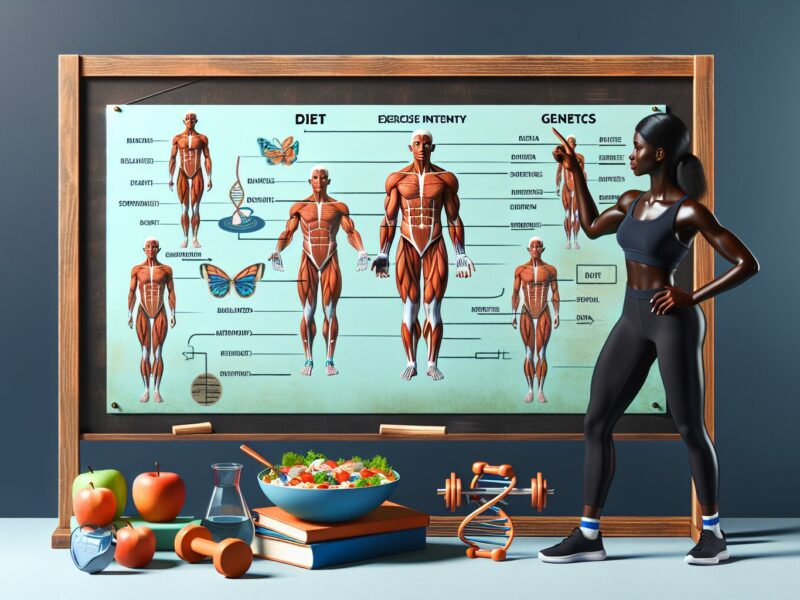If you’re looking to bulk up and build muscle mass, your diet plays a crucial role in achieving your desired results. Wondering what foods you should be including in your meals to maximize muscle growth? Look no further! This article will guide you through a range of nutrient-packed foods that are known to support muscle development. From lean proteins to healthy carbohydrates and essential fats, discover the power foods that will help you on your journey to gaining those impressive muscles you’ve always wanted.
Protein-rich foods
When it comes to building muscle mass, protein is the number one nutrient you need to focus on. Protein is the building block of muscle and is essential for repair and growth. Luckily, there are plenty of protein-rich foods that you can incorporate into your diet to help you reach your muscle-building goals.
Lean meats
Lean meats such as chicken breast, turkey, and lean cuts of beef are excellent sources of protein. They are low in fat and high in amino acids, which are crucial for muscle repair and growth. Grilling, baking, or broiling these meats is a healthy and delicious way to prepare them.
Seafood
Seafood, such as salmon, tuna, and shrimp, not only provides a good amount of protein but also contains omega-3 fatty acids. Omega-3s are beneficial for reducing inflammation and promoting muscle recovery. Including seafood in your diet a few times a week can give you a boost in muscle-building nutrients.
Eggs
Eggs are another fantastic protein source that should not be overlooked. They are not only affordable but also packed with essential amino acids. Additionally, eggs contain important vitamins and minerals that are essential for overall health. Whether you prefer them boiled, scrambled, or in an omelet, eggs are a versatile and nutritious option for muscle growth.
Greek yogurt
Greek yogurt is an excellent choice for those looking to increase their protein intake. It is thicker and creamier than regular yogurt and contains twice as much protein. Greek yogurt also provides calcium, which is essential for maintaining bone health. Enjoy it as a snack or add it to your smoothies for an extra protein boost.
Cottage cheese
Cottage cheese is a protein powerhouse that is often overlooked. It is rich in casein protein, a slow-digesting protein that fuels your muscles for an extended period of time. Cottage cheese is also a great source of calcium and other essential nutrients. Including cottage cheese in your diet can help you meet your protein needs and promote muscle growth.
Tofu
Tofu, a popular plant-based protein source, is a versatile ingredient that can be added to various dishes. It is made from soybeans and is a complete protein, meaning it contains all the essential amino acids your body needs. Tofu is also low in fat and cholesterol-free, making it a healthy choice for building muscle mass.
Quinoa
Quinoa is a complete protein grain that is rich in fiber and essential nutrients. It contains all nine essential amino acids, making it a great choice for vegetarians and vegans. Quinoa is also a good source of carbohydrates, which are important for providing energy during workouts. Adding quinoa to your meals can help support muscle growth and overall health.
Beans and legumes
Beans and legumes, such as lentils, chickpeas, and black beans, are not only high in protein but also rich in fiber and antioxidants. They are an excellent choice for plant-based individuals looking to build muscle mass. Beans and legumes can be easily incorporated into various recipes, from salads to soups, making it convenient to add them to your diet.
By incorporating these protein-rich foods into your diet, you can ensure that you are providing your body with the necessary building blocks for muscle growth and repair. Remember to choose lean sources of protein and vary your options to get a diverse range of nutrients.
Healthy fats
While protein is essential for building muscle, healthy fats also play a crucial role in promoting muscle growth and overall health. Including these healthy fats in your diet can help support hormone production, reduce inflammation, and enhance nutrient absorption. Here are some of the best healthy fats to incorporate into your muscle-building diet.
Avocado
Avocado is a rich source of monounsaturated fats, which can help improve heart health and maintain healthy cholesterol levels. It also contains essential vitamins and minerals, including vitamins E and K. Add avocado slices to your salads, sandwiches, or smoothies for a dose of healthy fats.
Nuts and seeds
Nuts and seeds, such as almonds, walnuts, flaxseeds, and chia seeds, are packed with healthy fats, fiber, and essential nutrients. They provide a good balance of omega-3 and omega-6 fatty acids, which contribute to brain health and reduce inflammation. Including a handful of nuts or seeds as a snack or adding them to your meals can provide a nutritious boost.
Olive oil
Olive oil is a staple in Mediterranean diets and is known for its heart-healthy properties. It contains monounsaturated fats and polyphenols, which have been shown to reduce the risk of heart disease. Use olive oil as a dressing for salads or as a cooking oil for sautéing vegetables to enjoy its benefits.
Coconut oil
Coconut oil is a unique source of saturated fat that is rich in medium-chain triglycerides (MCTs). MCTs can be quickly converted into energy, making them a great option for pre-workout fuel. Coconut oil also has anti-inflammatory properties and can support brain health. Use coconut oil in cooking or add it to your smoothies for a healthy fat boost.
Natural nut butter
Natural nut butter, such as almond butter or peanut butter, is a delicious and convenient way to incorporate healthy fats into your diet. Look for options with minimal added sugar and additives. Nut butter can be spread on whole wheat toast, added to smoothies, or used as a dip for fruits or vegetables.
Including these healthy fats in your diet can help support muscle growth and overall health. Remember to consume them in moderation, as fats are calorie-dense. A balanced diet that includes a moderate amount of healthy fats, along with protein and complex carbohydrates, will provide you with the necessary nutrients for building muscle mass.
Complex carbohydrates
Complex carbohydrates are an important fuel source for your body, especially when engaging in intense workouts and muscle-building activities. They provide the energy needed to power through your workouts and support muscle recovery. Here are some of the best complex carbohydrates to include in your muscle-building diet.
Brown rice
Brown rice is a nutritious and versatile whole grain that is rich in fiber, vitamins, and minerals. It provides a slow-releasing source of energy, keeping you fueled for longer periods of time. Replace white rice with brown rice in your meals to boost your complex carbohydrate intake.
Oats
Oats are a whole grain powerhouse that is not only high in complex carbohydrates but also rich in fiber and antioxidants. They provide a steady release of energy and help keep you feeling full and satisfied. Incorporate oats into your breakfast routine by enjoying oatmeal or overnight oats topped with fruits and nuts.
Sweet potatoes
Sweet potatoes are a nutritious and delicious carbohydrate source that is rich in vitamins, minerals, and fiber. They have a lower glycemic index compared to white potatoes, meaning they provide a more gradual rise in blood sugar levels. Roast or bake sweet potatoes as a side dish or use them as a base for a filling post-workout meal.
Whole wheat bread
Whole wheat bread is a healthier alternative to white bread, as it contains more fiber and nutrients. It is a good source of complex carbohydrates and can be used to make sandwiches or enjoyed as toast. Look for bread made with 100% whole wheat flour and minimal added sugars.
Quinoa
Quinoa is a versatile grain that contains complex carbohydrates, protein, and essential amino acids. It is also gluten-free, making it suitable for individuals with gluten sensitivities. Quinoa can be used as a base for salads, added to stir-fries, or enjoyed as a side dish.
Barley
Barley is a nutrient-dense grain that is a great source of fiber, vitamins, and minerals. It has a chewy texture and a nutty flavor, making it a delicious addition to soups, stews, and salads. Barley provides sustained energy and can be an excellent carbohydrate choice for muscle-building.
Beans and legumes
Beans and legumes not only provide protein but also serve as a great source of complex carbohydrates. They are fiber-rich and can help regulate blood sugar levels. Include beans and legumes in your meals as a side dish, add them to salads, or make delicious dips like hummus.
Incorporating these complex carbohydrates into your muscle-building diet can provide you with the necessary fuel to support exercise performance and muscle recovery. Remember to choose whole grain options as they are more nutrient-dense and provide additional health benefits compared to refined carbohydrates.
Fruits and vegetables
Fruits and vegetables should be an integral part of any muscle-building diet. They are packed with essential vitamins, minerals, antioxidants, and fiber. Including a variety of fruits and vegetables in your meals ensures that you are getting a diverse range of nutrients to support overall health and muscle growth.
Berries
Berries, such as blueberries, strawberries, and raspberries, are rich in antioxidants and other beneficial compounds. They provide vitamins, minerals, and fiber while adding natural sweetness to your meals. Enjoy them on their own as a snack, add them to smoothies, or top your yogurt or oatmeal with a handful of berries.
Citrus fruits
Citrus fruits, like oranges, grapefruits, and lemons, are not only refreshing but also provide a good amount of vitamin C. Vitamin C is essential for collagen synthesis, which plays a role in maintaining healthy connective tissues. Squeeze fresh citrus juice on salads or enjoy them as a snack to boost your vitamin C intake.
Leafy greens
Leafy greens, such as spinach, kale, and broccoli, are rich in vitamins A, C, and K, as well as minerals like calcium and iron. They are also high in antioxidants and fiber. Add leafy greens to your salads, smoothies, or sauté them as a side dish to reap their numerous health benefits.
Bell peppers
Bell peppers come in various vibrant colors and are packed with vitamins, minerals, and antioxidants. They are an excellent source of vitamin C and provide a good amount of fiber. Include bell peppers in your stir-fries, salads, or munch on them as a crunchy snack.
Broccoli
Broccoli is a nutrient powerhouse that is high in fiber, vitamins, and minerals. It is also rich in antioxidants and compounds that have anti-inflammatory properties. Steam, roast, or sauté broccoli as a side dish or add it to stir-fries and salads for an extra nutrient boost.
Tomatoes
Tomatoes are not only juicy and delicious but also provide a good amount of vitamins A and C, as well as lycopene, a powerful antioxidant. They are versatile and can be used in various dishes, from raw salads to cooked sauces and soups. Add sliced tomatoes to sandwiches or enjoy them as a base for homemade salsa.
Including a variety of fruits and vegetables in your diet is essential for promoting overall health and supporting muscle growth. Aim to include different colors of fruits and vegetables to ensure that you are getting a wide range of vitamins, minerals, and antioxidants.

Hydration
Proper hydration is key when it comes to optimal muscle function and recovery. Water is essential for regulating body temperature, lubricating joints, transporting nutrients, and removing waste products from the body. In addition to water, there are other hydrating options that can contribute to your overall hydration status.
Water
Water should be your go-to choice for hydration throughout the day. It is calorie-free, sugar-free, and helps maintain optimal bodily functions. Aim to drink at least 8 cups (64 ounces) of water daily, or more if you are engaging in intense workouts or in hot weather.
Coconut water
Coconut water is a natural hydration option that is packed with electrolytes, such as potassium and magnesium. These electrolytes help replenish what is lost through sweat during exercise. Coconut water is a refreshing choice after a workout or as an alternative to a sugary sports drink.
Herbal tea
Herbal teas are a hydrating option that can also provide additional health benefits. Chamomile, ginger, and green tea are just a few examples of herbal teas that can be enjoyed hot or cold. Be mindful of added sugars or caffeine in flavored herbal teas and opt for unsweetened varieties whenever possible.
Remember to listen to your body’s signals of thirst and sip on water or other hydrating beverages throughout the day. Staying properly hydrated is important for optimizing muscle performance, preventing muscle cramps, and promoting overall health.
Pre-workout foods
Eating the right foods before your workout can provide you with the energy and nutrients necessary to perform at your best. Pre-workout meals or snacks should be easily digestible, rich in carbohydrates, and include a moderate amount of protein. Here are some pre-workout foods to consider incorporating into your routine.
Bananas
Bananas are a great pre-workout snack as they are packed with carbohydrates, natural sugars, and potassium. They provide a quick source of energy and can help prevent muscle cramps. Enjoy a banana on its own or add it to a smoothie or oatmeal before your workout.
Whole wheat toast
Whole wheat toast is a simple and easily digestible option for pre-workout carbohydrates. It provides a steady release of energy and can help fuel your workout. Top your toast with a tablespoon of nut butter or a slice of lean protein, such as turkey or chicken, for an added protein boost.
Greek yogurt
Greek yogurt is an excellent pre-workout snack as it is rich in protein and carbohydrates. It provides a combination of quick and sustained energy. Enjoy a small serving of Greek yogurt with some berries or a drizzle of honey before hitting the gym.
Oatmeal
Oatmeal is a filling and nutritious pre-workout option that is rich in complex carbohydrates. It provides a slow-releasing source of energy to keep you fueled during your workout. Add a scoop of protein powder, some fruits, and a sprinkle of nuts to create a well-balanced pre-workout meal.
Including these pre-workout foods in your routine can help improve your energy levels, endurance, and overall performance. Experiment with different options and find what works best for your body and preferences.

Post-workout foods
After an intense workout, your body needs to replenish the energy stores and repair the muscle damage that occurred during exercise. Consuming the right foods after your workout can support muscle recovery and promote optimal growth. Here are some post-workout foods to consider incorporating into your routine.
Chicken or salmon
Chicken or salmon are excellent sources of lean protein that can help rebuild and repair your muscles after a workout. They also provide important amino acids necessary for muscle growth. Incorporate grilled chicken or baked salmon into a post-workout meal alongside a serving of complex carbohydrates and vegetables.
Brown rice
Brown rice is a complex carbohydrate that can replenish glycogen stores and provide energy after a workout. It is also a good source of fiber and other essential nutrients. Pair a serving of brown rice with a lean protein source and vegetables for a well-balanced post-workout meal.
Leafy greens
Leafy greens, such as spinach or kale, are packed with vitamins, minerals, and antioxidants that support muscle recovery and overall health. They also provide fiber, which aids digestion and regulates blood sugar levels. Include a generous portion of leafy greens in your post-workout meals or add them to your smoothies.
Mixed berries
Mixed berries, such as strawberries, blueberries, and raspberries, are not only delicious but also provide antioxidants that can help reduce muscle inflammation. They are also a good source of carbohydrates to replenish glycogen stores. Add a handful of mixed berries to your post-workout protein shake or enjoy them as a topping for Greek yogurt.
Including these post-workout foods in your diet can support muscle recovery, reduce muscle soreness, and enhance the overall benefits of your workout. Aim to consume a balanced meal or snack within 30 to 60 minutes after your workout to maximize nutrient absorption and optimize muscle growth.
Supplements
Supplements can be a convenient way to support your muscle-building goals and complement a healthy diet. They should not replace whole foods but can provide additional nutrients that are beneficial for muscle growth and recovery. Here are some popular supplements to consider incorporating into your routine.
Whey protein powder
Whey protein powder is a popular supplement among athletes and fitness enthusiasts. It is a complete protein source that is quickly absorbed by the body, making it ideal for post-workout recovery. Whey protein can supplement your protein intake, support muscle growth, and enhance muscle repair.
Creatine
Creatine is a naturally occurring compound found in muscle cells. It can increase muscle strength, power, and endurance, making it beneficial for high-intensity workouts. Creatine supplementation can help you push through tough workouts and recover faster between sets.
Branched-chain amino acids (BCAAs)
BCAAs, including leucine, isoleucine, and valine, are essential amino acids that help stimulate protein synthesis and reduce muscle breakdown. Taking BCAA supplements before or during workouts can help support muscle recovery and improve exercise performance.
Beta-alanine
Beta-alanine is an amino acid that can help increase muscle endurance and reduce muscle fatigue. It works by buffering acid buildup in the muscles, allowing you to train harder and longer. Beta-alanine supplements can be taken before workouts to enhance performance.
Fish oil
Fish oil contains omega-3 fatty acids, which have been shown to have anti-inflammatory properties and support muscle recovery. Fish oil supplements can help reduce muscle soreness and inflammation, allowing for quicker recovery between workouts.
It’s important to note that supplements are not necessary for everyone and should be used in conjunction with a balanced diet and exercise routine. Consult with a healthcare professional or registered dietitian before starting any new supplement regimen to ensure they are appropriate for your individual needs.

Meal timing
In addition to the quality and variety of foods you consume, the timing of your meals can also impact your muscle-building efforts. Paying attention to when you eat can optimize nutrient absorption, energy levels, and muscle recovery. Here are some guidelines for meal timing.
Eating before a workout
Eating a meal or snack before a workout can provide you with the necessary fuel and energy to sustain your performance. Consuming a balanced meal approximately 2-3 hours before your workout can help optimize nutrient absorption and prevent digestive discomfort during exercise. If you prefer to eat closer to your workout, opt for easily digestible options like a banana or a small portion of Greek yogurt.
Eating after a workout
Consuming a post-workout meal or snack within 30 to 60 minutes after your workout is crucial for replenishing glycogen stores and initiating the muscle repair process. This is often referred to as the “anabolic window” where your body is primed to absorb nutrients and promote muscle growth. Aim for a meal or snack that includes protein and carbohydrates to support muscle recovery and replenish energy stores.
Snacking throughout the day
Snacking between meals can help maintain steady energy levels and provide a constant supply of nutrients for muscle growth. Choose healthy snacks that include a combination of protein, carbohydrates, and healthy fats. Some options include Greek yogurt with berries, a handful of nuts and seeds, or a protein smoothie.
Remember to listen to your body’s hunger and fullness cues and adjust your meal timing accordingly. The most important factor is consistency in fueling your body with nutrient-dense meals and snacks throughout the day.
Calorie surplus
To build muscle, you need to consume more calories than you burn, creating a calorie surplus. This surplus provides the extra energy needed for muscle growth and repair. Focus on incorporating nutrient-dense foods into your diet to ensure you are meeting your calorie needs while still providing your body with the necessary nutrients.
Lean protein sources
Lean protein sources, such as chicken breast, turkey, fish, tofu, and legumes, should make up a significant portion of your calorie surplus. They provide essential amino acids for muscle synthesis and repair without excessive fat and calories. Aim for a protein intake of around 1.2-2 grams per kilogram of body weight to support muscle growth.
Complex carbohydrates
Complex carbohydrates are an important source of energy when in a calorie surplus. Include whole grains like brown rice, oats, quinoa, and barley, as well as beans and legumes, in your meals. These carbohydrates provide sustained energy and essential nutrients for muscle growth.
Healthy fats
While it’s important to consume more calories than you burn, it’s essential to choose healthy fats to avoid excessive weight gain. Incorporate foods like avocado, nuts and seeds, olive oil, and coconut oil for their nutritional value and healthy fat content.
Building muscle requires a consistent calorie surplus and a well-balanced diet that includes all three macronutrients: protein, carbohydrates, and fats. Remember to track your progress and adjust your caloric intake and macronutrient ratios as needed to support muscle growth.
In conclusion, focusing on the right foods and timing your meals appropriately can greatly support your muscle-building goals. Including protein-rich foods, healthy fats, complex carbohydrates, fruits and vegetables, and hydrating properly are key components of a well-rounded muscle-building diet. Additionally, considering pre and post-workout foods, incorporating the right supplements, and understanding proper meal timing can further enhance your efforts. Remember, building muscle takes time, consistency, and a healthy lifestyle overall.
So, start incorporating these muscle-building foods into your diet, listen to your body, and enjoy the progress you make on your journey to a stronger, healthier you!




